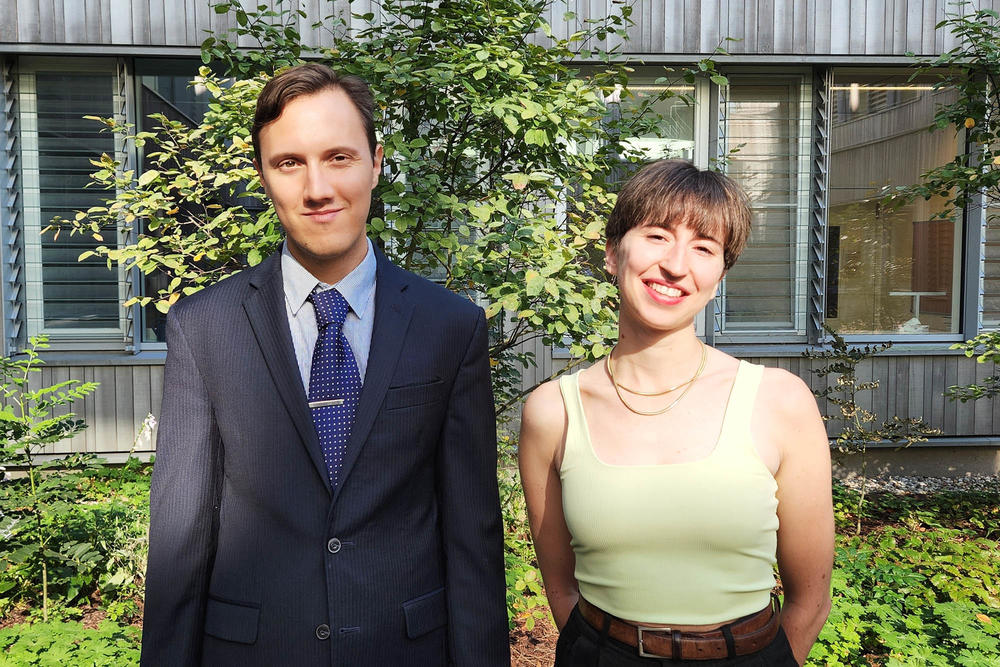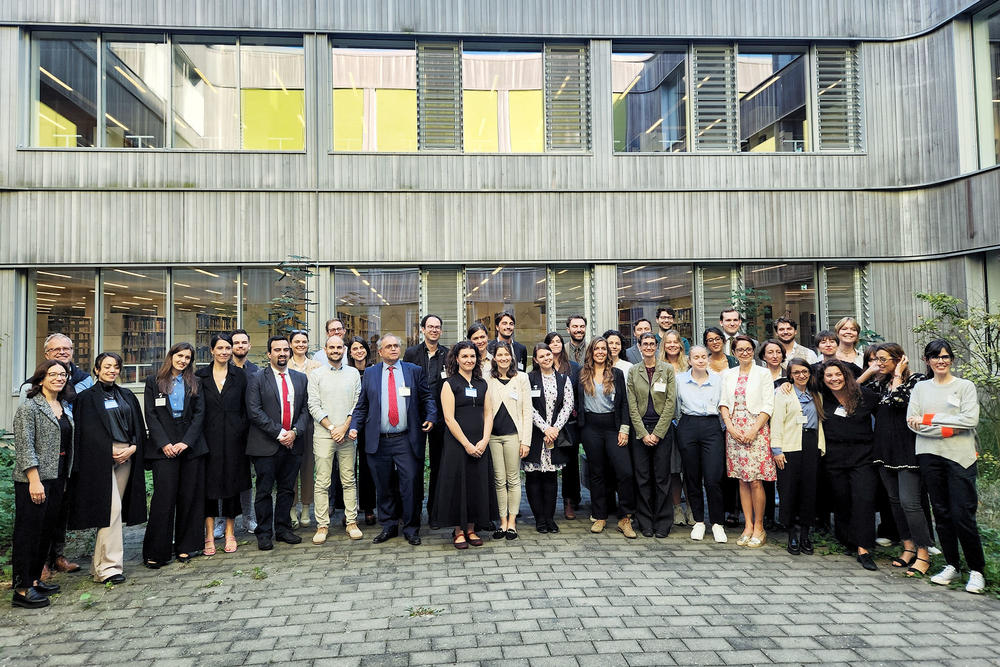Scholarship Program for Doctoral Candidates Interested in Shaping the Future of Europe
From October onward applications for the Europaeum Scholars Program will be open to doctoral candidates who want to make Europe a better place and collaborate on multidisciplinary projects
Oct 11, 2023
“Words cannot explain how great this program is,” says Europaeum scholar Alix Ricau. Together with thirty-five other scholarship holders, the doctoral candidate at Freie Universität Berlin’s Friedrich Schlegel Graduate School for Literary Studies is in the third cohort of the Europaeum program. Taken alongside the scholar’s doctoral research, this two-year program is designed to give participants the professional skills and connections they will need later in their careers so that they can make the Europe of tomorrow a better place.
Scholars gain leadership skills and meet leading academics, practitioners, and policymakers while completing seven five-day modules at different universities. Nineteen prestigious European universities in total make up the Europaeum network.
From Environmental Protection to Data Security
“Getting the chance to meet the other scholars is one of the most important things for me personally. They’re all amazing people, and I’d like to stay in touch with everyone,” says Keith Prushankin. He is a doctoral candidate in political science at Freie Universität and is involved in the Cluster of Excellence “Contestations of the Liberal Script (SCRIPTS).”
“For example, if I hadn’t joined the Europaeum program I would never have met Alix. She researches literature and I study politics – two subjects that rarely come into contact with one another, even at the same university,” says Prushankin.
“I think it’s great that students from different fields such as music and computer science can end up working on the same project because they share a common interest like renewable energy,” says Ricau.
The scholars work together in small groups on multidisciplinary capstone projects that address areas as diverse as culture, environmental protection, and data security. The sole criterion for these projects is that they must aim to make Europe a better place by making life easier for its citizens.
A Focus on Europe
Ricau’s group worked on the topic of “renewable energy communities.” They developed proposals on how individual citizens can effectively generate their own energy using solar modules on balconies and roofs for example.
Prushankin and his team worked on “digital participation tools,” exploring how the websites of EU institutions could be made more accessible and how to make it more straightforward for people to participate in decision-making processes by digital means.
Searching for apt solutions to European issues: Europaeum scholarship holders.
Image Credit: Nora Jacobs
Alongside working on their own projects, scholars visit international institutions so that they can learn more about legislative processes from up close. “We’ve been to visit the United Nations and the World Trade Organization in Geneva,” says Ricau. They have also met with journalists, businesspeople, and representatives from nongovernmental organizations and cultural institutions to discuss problems in Europe and potential solutions.
This was another factor that motivated Prushankin to apply. “I wanted to find ways of putting my academic research into practice in a tangible manner,” he says.
Support for Talented and Dedicated Scholars
“Our scholars program is more important today than ever before,” says Tracey Sowerby, who is the scholars program director. “Climate change and the war in Ukraine currently have a great deal of influence on the political landscape of European Union member states,” she adds. “The war has forced us to face issues regarding energy resources. Another question would be what the membership applications from Georgia, Moldova, and Ukraine mean for the EU. How should politicians respond to these challenges?” These are the kinds of subjects scholars are expected to discuss.
“We want to offer the most talented and dedicated doctoral candidates the opportunity to enhance their skills in the hope that they will apply them over the course of their careers to improve the lives of people in Europe,” adds Sowerby.
Each student is fully funded by a scholarship covering all accommodation, travel, food, and tuition. The new cohort will begin the program in March 2024. Applications are still being accepted.
The original German version of this article appeared in campus.leben, the online magazine published by Freie Universität Berlin.
Further Information
The Europaeum is a network made up of nineteen leading European universities dedicated to providing early-career researchers with opportunities for further development as well as promoting European integration. It organizes joint summer schools, international conferences, publications, seminars, colloquia, and lectures to facilitate cooperation in research and teaching between its partner institutions, establish a European academic network, and support the next generation of leaders in Europe. Freie Universität Berlin has been a member of the network since 2019.


